








There is an important conversation that is needed across the Church worldwide. In his new book, Steve Murrell has tackled the subject of leadership transitions and how different generations can prepare for new seasons.

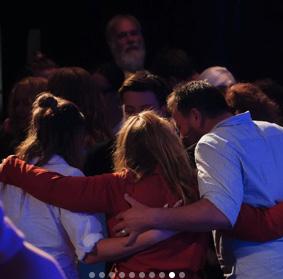





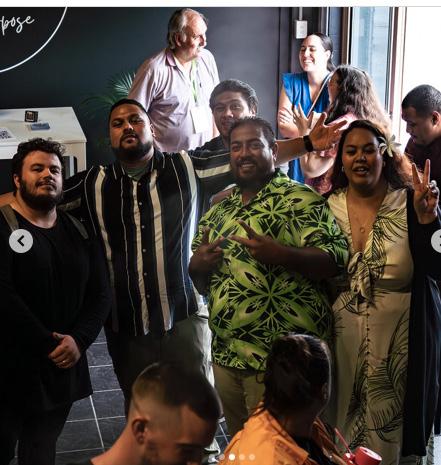
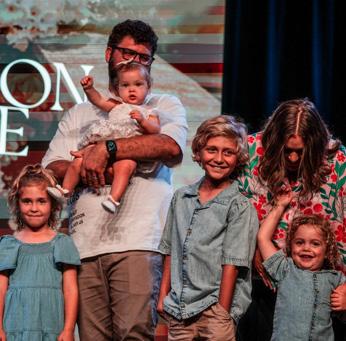
The inaugural meeting of the newly-formed Oceania region of the World Assemblies of God Fellowship was held in Fiji from 5-7 March 2024.
The national AG church leaders of ten Pacific nations met together to discuss the vision and how they could collaborate to reach this important region for Jesus Christ.
Pastor Wayne Alcorn, National President of the ACC, was elected as the first chair of the Pacific region, to be known as AG Oceania.
'It is an honour to give leadership and serve the churches in this region.' he said. 'There are exciting things happening through the churches in this part of the world. It is a strategic region politically, but more importantly, spiritually, to bring the message of Christ.'
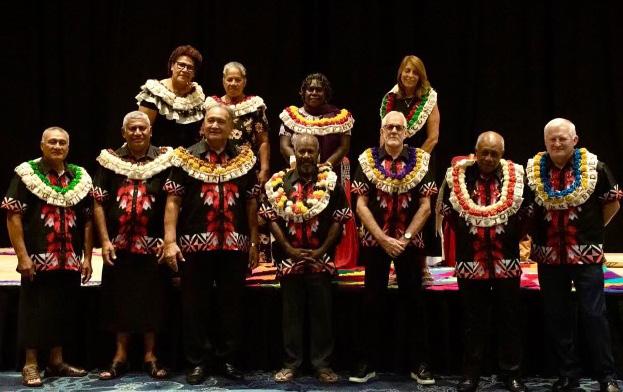
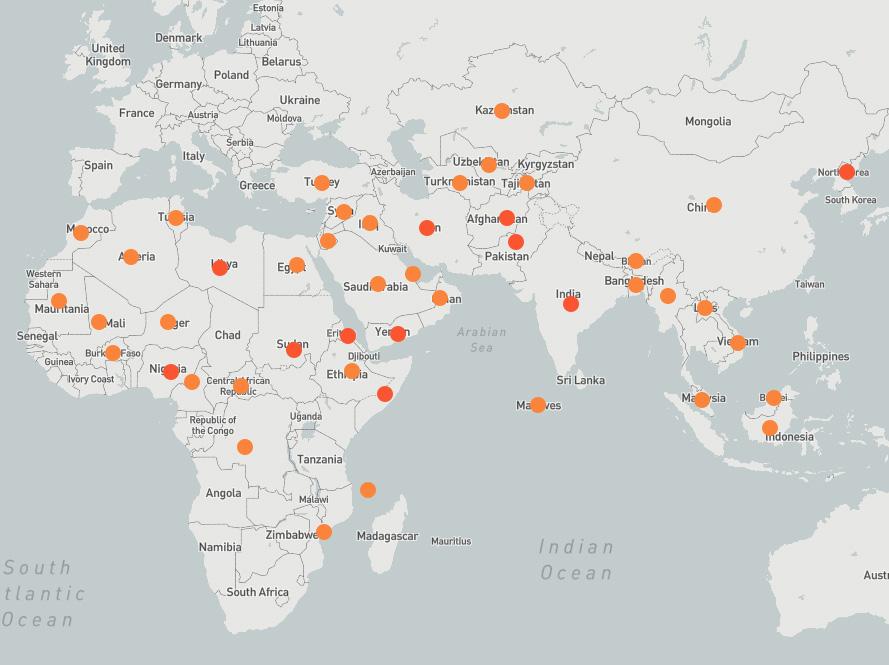
The most dangerous places to be Christian
Open Doors released the 2024 World Watch List, revealing the 50 most dangeorus countries to be a Christian. Persecution includes being imprisoned for your faith, followed by secret police or kidnapped by extremists.
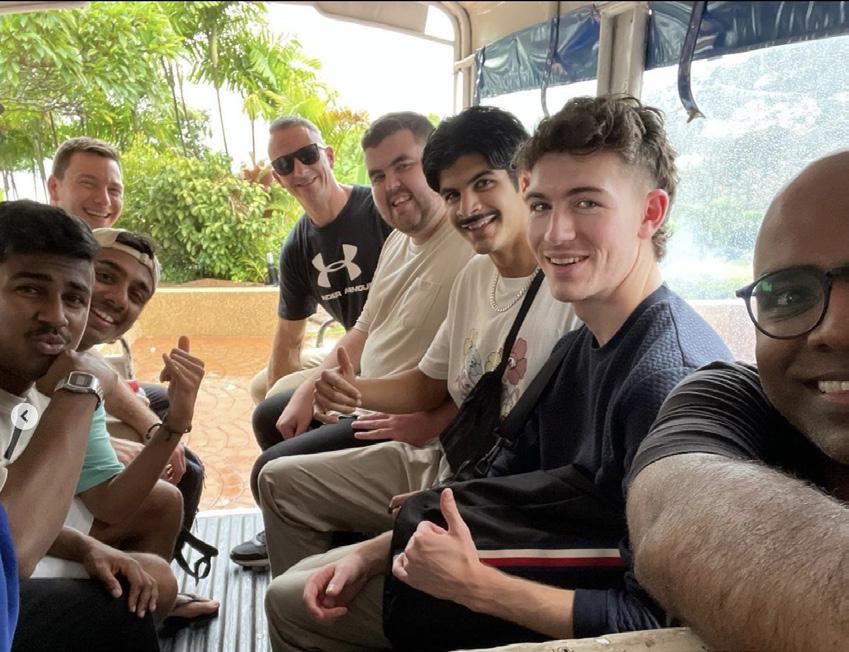
In the vibrant city of Perth, Pastors Joel and Sharon Chelliah lead a church with a heartbeat for global missions.
Missions has always been a core part of Centrepoint Church’s history – a commitment that Joel traces back to his days at Perth Christian Life Centre under the leadership of Pastor David Storer.
'David had a real passion for missions and he was very big on making sure that our church gave away ten percent of all its income to local and international missions,' says Joel. 'Centrepoint has continued that practice of giving more than ten percent away every single year, so that not only is our church blessed but also through our church, we can bless the nations.'
With a modest beginning of 30 adults and 20 kids, Centrepoint has burgeoned into a multi-campus powerhouse across Perth, never wavering in its commitment to missions. Today the church gives to a multitude of different projects and missionaries overseas which, according to Joel, all have 'different creative ways of transforming that nation'.
'And I love that,' Joel adds. 'I purposely have a number of different missions projects because I know that God puts a different burden on different people. When I’m presenting a missionary project to our church, I need to understand that different burdens will motivate different people too.'
Joel is also passionate about people travelling to the mission field to see the work for themselves. 'We’ve seen people come back from trips just having all their perspectives radically transformed. We live in a bubble here in Western society and to actually see the Church on the ground there, to hear of persecution, to see the miracles, to hear the testimonies and be able to pour into others has been a wonderful delight.'
Joel's encouragement to other pastors, especially those who are planting new churches, is, in every season, to prioritise missions.
'Don’t delay, don’t postpone from the first day – do it now and just watch God amaze you as you put His people first,' Joel states. 'And as you look after the poor, the orphan and the widow, God will open the windows of blessing over your church and meet those other needs too!'
LISTEN
ACC INTERNATIONAL CONFERENCE 2024



TUESDAY 6 – THURSDAY 8 AUGUST
PHUKET THAILAND
acci.org.au/conference











ACC Pastor Jacqueline Grey was recently appointed to the Faith and Order Commission of the World Council of Churches. She is one of five Pentecostals from around the world selected to join the Commission.
Jacqui, who serves as Professor of Biblical Studies at Alphacrucis University College, was nominated by the Pentecostal World Fellowship. The Faith and Order Commission comprises of theologians and scholars from diverse church traditions, including Protestant, Orthodox, and Catholic.
The purpose of the group is to build unity across churches. They look at theological issues that cause division among Christians, and collaborate to assist churches navigate disagreements and to grow in unity.
The new cohort of Commissioners met in North Sulawesi, Indonesia from 1 - 8 February 2024. At this meeting, Jacqui gave a presentation on Pentecostals and outreach. The presentation was given to help other traditions understand how Pentecostals approach mission.
An emphasis of her presentation was how the Holy Spirit, poured out at Pentecost, empowers individuals and the
church community to be witnesses of the good news of Jesus Christ.
Also at the meeting, the Commission established various study groups to address specific theological and pastoral issues. Jacqui is part of a study group exploring what it means to be human from a biblical perspective. This is especially important considering the development of AI technologies and the undermining of human dignity in our world. Such moral issues will be considered in light of the biblical foundation of humans made in the image of God. The study group aims to develop resources for the church to help navigate these tricky questions.

Make 2024 the year you develop your community engagement skills.
Join the national leader of ACC Community Engagement, Paul Bartlett, who is holding Statewide round table training throughout the year.
NSW+ACT: 7 May & 17 September 2024
VIC: 8 May & 31 July 2024
More info: Email community.engagement@acc.org.au
RPL Diploma of Community Services
If you have over five years’ experience in community engagement through your ministry, join the four-day intensive with Paul Bartlett who will guide you through best practice in community engagement. Participants will receive an Alphacrucis College RPL Diploma of Community Services.
1 - 5 July 2024 (registrations close 31 May)
23 - 27 September 2024 (registrations close 23 August)
More info: Email Denise.Lloyd@ac.edu.au

When I was a young girl aged just 20, a minister called Rev. Walter Beuttler came to our church. His relationship and walk with the Lord is something that ignited something in me which, 50+ years later, still lives on in my heart.
He continually exhorted us to cultivate a personal experiential knowledge of the Lord. He used his own unique spiritual walk and experiences with the Lord as a means to provoke us to begin seeking the Lord in earnest.
Walter Beuttler was the one that said, 'If we build God a house of devotion, He will build us a house of ministry.'
The continual challenge and question to our own heart and in our ministry must surely be, in seeking to build His house, am I building a house of devotion to my Lord and my God?
A powerful question, well worth our contemplation and well worth our attention.
Upon Rev Beuttler’s death in the 1980s, I wrote to his wife and thanked her for the immeasurable deposit her husband had left in my life and the lives of multitudes of believers as he travelled the world over 40 years of ministry. I will never forget her reply. She said, 'Nobody will ever know what this ministry cost him.'
There is a cost. Prayer does not come easy; devotion does not come easy; but the reward is so immeasurable and out of this He will Build us a house of ministry
Our ACC National Prayer Network is here to undergird, support and stand with our pastors and leaders in their time of challenge and time of need, either on a personal level or in your church. We pride ourselves on our confidentiality with your requests and count it a privilege to support you in anyway we can.
P.S. The Internet has some wonderful articles/sermons under Walter Beuttler!
Pastor Wendy Megchelse is the National coordinator of the ACC Prayer Network. Email confidential prayer requests to prayer@acc.org.au



After 35 years, we’re still on mission to help you point people towards God!

Any Church. Any Size. Any Style. Anywhere.

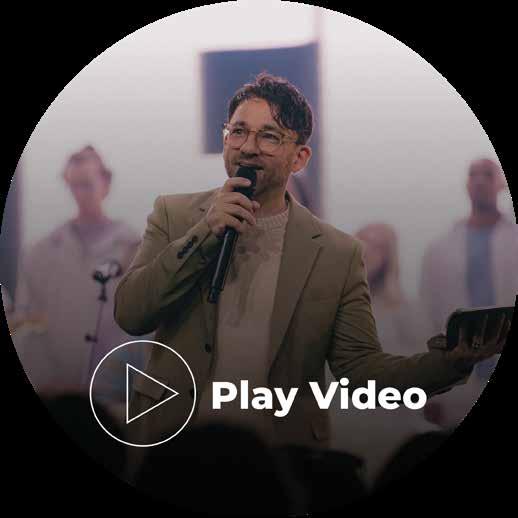

Over the decades we’ve worked with some incredible churches Visit p.com.au AUDIO,VIDEO

Save an additional EXCLUSIVE ACC OFFER 10% OFF on LED Screens from




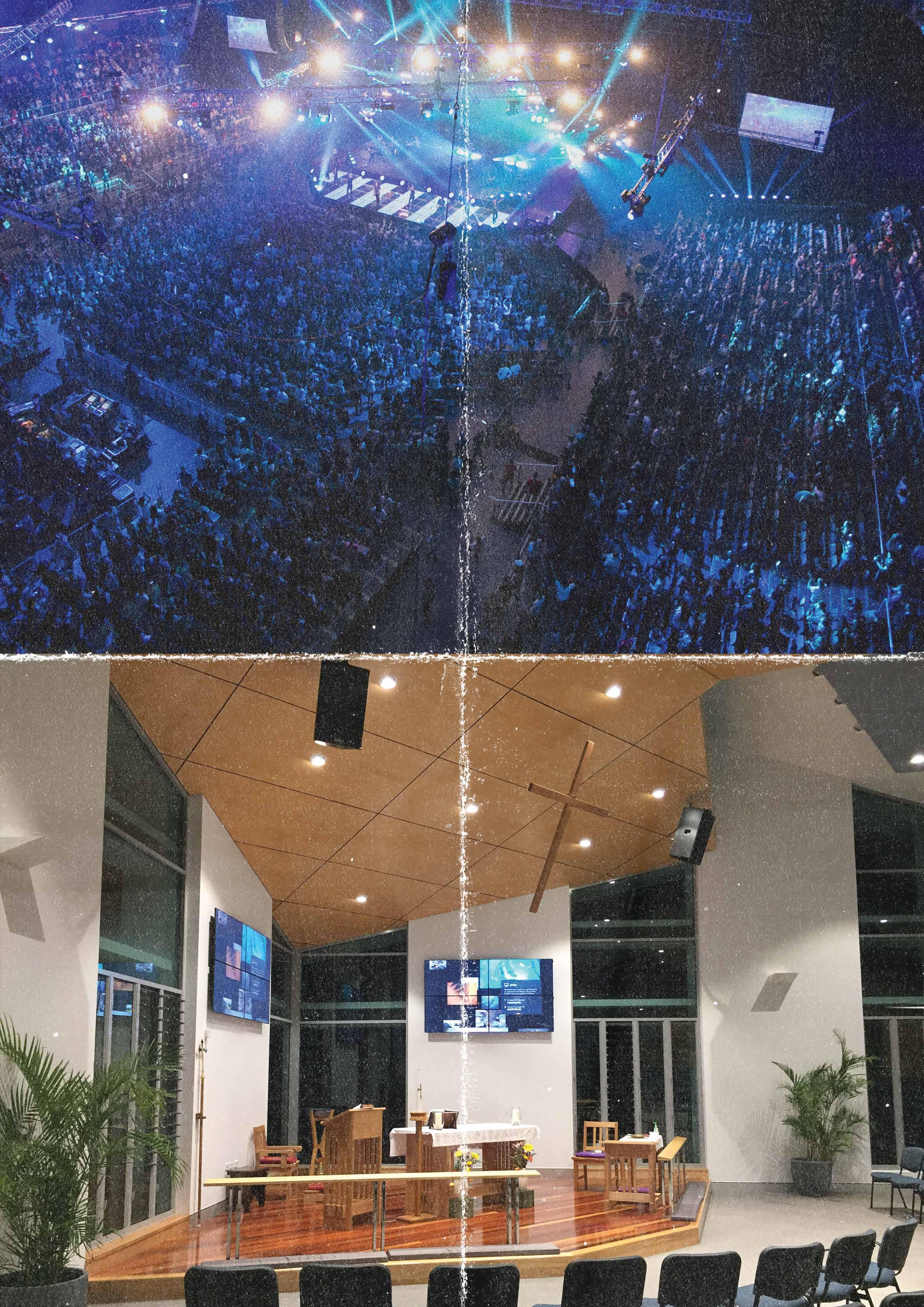


 Henry Seeley The Belonging
Cristian Szust Enjoy Church
Joel Cave Glow Church
Henry Seeley The Belonging
Cristian Szust Enjoy Church
Joel Cave Glow Church
Youth Alive Queensland launched For the Youth Con for youth pastors and leaders in Brisbane.
The vision was simple – to rally the leaders whose heart is 'for the youth', to have moments of encounter, as well as practical training to continue to reach and influence the students of our regions and cities.
Over 600 leaders gathered together from as far north as Cairns and Townsville, through to regional communities out west, to the south of the Gold Coast.
Guest speakers were Tim and Rebekah Somers, the Youth Pastors of Elevation Church. What they brought was significant as altars were filled, the presence of God was incredibly tangible, and leaders tarried on for hours in worship, even after the sessions were concluded.


In a recent article in The Australian newspaper, the Catholic Archbishop of Sydney, Anthony Fisher, warned that the ability of Australians to ‘gather, speak freely, pray together and undertake works for service of others’ is being reduced ‘slice by slice’.1 Fisher called upon the nation's leaders to come together to protect religious freedoms.
The Archbishop was posing a thought for all Australians that, ‘We’re losing our religion’.
As I read this well-written article, I had the thought: Do Australians even care? Should I go further and ask, Do clergy even care?
The Guardian newspaper (22 August 2023) reported that an unnamed woman was ‘shocked’ that the Catholic run Mercy Hospital for Women in Victoria, if complications arose in her pregnancy ‘would not assist in terminating a pregnancy due to its Catholic affiliation’.
Am I wrong to think that being ‘shocked’ that a Catholic Hospital would promote Catholic values, such values being unchanged for generations, is hard to fathom or understand?
If no protections for religious freedom exist into the future, could this unnamed woman prosecute the hospital for some form of discrimination?

Surely no government in Australia, would compulsorily take over a Catholic hospital, operating with flawless accreditation and world practice standards of medical and patient care, purely because they wouldn’t condone abortions and euthanasia?
Well, this did happen in the ACT and the ACT got away with it with no electoral consequences.
These two examples perhaps say everything about the community’s changing attitudes towards religious freedoms.
In a direct contradiction to the United Nations Universal Declaration of Human Rights the Queensland AntiDiscrimination Bill 2024 and the recently released Australian law Reform Commission, both recommend taking away the right of faith-based schools to preference the employment of teachers having the values and the tenets of those schools. Am I missing something? Surely parents who are willing to pay for their children to be educated at a faith-based school would expect nothing less that the staff of that school to support and promote the values of the faith of that particular school.
Senator David Fawcett, Deputy Chair of the Joint Standing Committee on Foreign Affairs, Defence and Trade and a Liberal Senator for South Australia, stated, ‘Faith-based schools currently have discretion to positively preference

staff that adhere to that religion and its practices. This is not 'anti' others but 'pro' association with like-minded people, in order to foster or protect the religious ethos of the school.’ 2
Then, there is what I can only describe as the meanspirited, recently released Report by the Productivity Commission which in my opinion, although this is disputed by the Commission, is seeking to remove ‘advancing religion’ from the Charities Sector in our nation. Churches are without doubt the oldest and most frequent providers of charitable assistance in Australia.
I have often expressed the view that clergy have a greater responsibility than only the stewardship of the evangelism of the Gospel. Their greater stewardship is the protection of the ancient human right – religious freedom. So, as clergy, do you care that we are ‘losing our religion’?
It is deeply irresponsible that, we as clergy, leave the ‘heavy lifting’ of legislating to protect religious freedom to our political leaders. All of us must be part of the clarion call that religious freedom must be protected and in doing so you, as clergy, will demonstrate that you do really care.
References:
1 The Australian 25 March 2024 - Archbishop’s dire warning: ‘We’re losing our religion’
2 Menzies Research Centre – ‘Find Balance in the History or Find History in the Balance, May 19, 2023 by Senator David Fawcett
Pastor Mark Edwards OAM is the ACC National representative for Religious Freedom and Political Engagement.


SUNDAY 26 MAY 2024
Churches standing together in unity for Religious Freedom in our nation.

Q&A with Dr Sam Chand on key leadership lessons he's learned

Dr Sam Chand is a well-respected friend and leadership coach to many ACC pastors. The former Pastor, College President and Chancellor now serves as President Emeritus of Beulah Heights University, USA.
In his current season of life, Sam Chand does one thing — Leadership. His singular vision for his life is to help others succeed. His book, Turbo Leadership, contains a selection of 40 bite-sized reflections on topics ranging from listening and handling criticism to discovering potential leaders and dealing with underperformance.
The editorial director of AVAIL, Matt Green, sat down with Dr. Chand to explore some of the relevant issues that impact today’s leadership landscape. This is what they talked about.
Q: Looking back, what would you see as one of your biggest leadership mistakes and what did you learn from it?
SAM: My biggest leadership mistake, bar none, was trying to persuade people to take my journey with me when they’re ready to get off the train. When an employee is ready to look for another employment, when a church member is thinking about going somewhere—leaving your church.
Q: This principle applies to a lot of areas, doesn’t it?
SAM: Yes. You can persuade people, but it’ll be short term. And then, when they disengage the next time, it’s not going be as pretty as it could have been the first time. When you talk people into staying, when you talk people into doing business with you, when you talk people into working for you, then you’ve got to do a sales job to keep them there, if that is the door they came from.
Q: What would you say is one thing about your leadership style that’s changed in the last 50 years of your journey?
SAM: I did not understand the pain that leaders carry. When I was younger, I thought, If I were like him, I wouldn’t have a care in the world. CEO of the company. I could come, go, do whatever I want to make a lot of money. If I’m the senior pastor, who does he ask for time off or comp time or sick leave? I didn’t understand that the higher you go, the greater your pain. I had no appreciation for it. The older I’m getting, the greater respect I have for high-level leaders who carry pain. So, you can dog your CEO, your supervisor, your department leader, your senior pastor all you want to. But you have no idea the stresses and the pains that they carry in their lives.
Q: So, you’ve grown in your empathy because you’ve been able to be in people’s shoes and see what it is that they are experiencing. And then, of course, with

consulting, you’re hearing from them directly as they share in a transparent way.
SAM: I wrote a whole book about it called Leadership Pain. I had no concept of the pain. I remember looking at my pastor when I was in college and saying, 'Man, he’s got a good life.' People ask, 'Why is that CEO getting paid that much money?' Well, he is getting paid that much money to make three to five decisions a year that will impact thousands of lives and millions of dollars.
Q: We’re in an incredibly divisive era for leaders to have to navigate. And you seem to have relationships with leaders in a lot of different tribes. Can you share a bit about how you’ve been able to maintain relationships across different tribes and communities and what that’s looked like.
SAM: That question has been asked of me fairly regularly because people see me in so many different domains— ethnically, denominationally, doctrinally, etc. First, I keep focusing on the essentials and not get bogged down in distractions. Second, I have higher doses of empathy. I want to know where they’re coming from and what is happening in their life. Third, one of the things I’m getting better at is holding conflicting thoughts in my mind at the same time. I’m very much more about 'both-and' than 'either-or'. I used to live an either-or life. Now I can hold three conflicting thoughts at the same time, argue for all three of them and not feel like I have to make a choice. So that allows me to stay focused on the relationship. Finally, I really, really subscribe to the primacy of relationships. I ask myself the question, Is this issue large enough to throw my relationship away?
Q: What do you wish you spent more time learning and studying early in your journey that maybe would’ve equipped you for some of the challenges that you faced later on or might be facing now?
SAM: One is vision casting, and the other is understanding people. I knew that I had to be a visionary. I get that, >

The higher you go, there’ll be more distractions. – SAM CHAND
but I did not know how to cast that vision. There’s a big difference between having a vision and casting that vision in such a way that people will understand it, embrace it, pay the price for it, follow it and create a commitment toward it. The second thing is understanding people. I was naive to think that if it is godly, biblical, scriptural, holy, people-serving, heaven-focused, that people will just embrace it. Understanding their motivations, their histories, their context, their previous hurts and disappointments, their limitations, their passions and their commitments to life would have helped me minimise conflict, be more productive, certainly have more people who would understand where I’m coming from because I could frame where I was coming from in their context.
Q: Distraction has become a major obstacle for leaders and our ability to accomplish our goals. I think it’s only gotten worse because of technology and the cultural static around us. Are there any habits that you’ve cultivated to maintain focus and avoid distraction?
SAM: One is to not fight distractions. The higher you go, there’ll be more distractions. When somebody pokes their head into your office or gives you a call and says, 'Hey, can I talk to you for a minute?' It’s never a minute. Distractions are part of life. Instead of seeing distractions as something bad that you’ve got to overcome and fix, you start seeing distractions as part of life. I live in Atlanta. I can bemoan the traffic here, but if I’m going to continue living in Atlanta, I might as well make peace with it and then organise myself accordingly.
The second thing I have done is, at the conclusion of the previous day, I’m going to say to myself, Here are three things I have to get accomplished before tomorrow. Not everything is as important. So I will create these goals, and so when other things are happening, I let them go because I have my goals. You cannot have a long list— maybe three at the most, five major goals for the next day that you have to get done.
Q: What’s an area in which you’ve changed your mind?
SAM: That I have to agree on everything to work with you. Earlier in my career, simply because my upbringing and the church ecosystem I was in, we had to agree on the whole doctrinal statement, on all the minutia, to be able to work together. People will say something like, 'You
know, I go to a Christian dentist.' And I say, 'That’s really good. There’s nothing wrong with that.' Then my question is, 'Is he a good dentist?' It just opens up your horizons of learning—totally opens up my world to me. I don’t have to agree with that newscaster or with their lifestyle. I don’t have to agree with the author to learn from them.
Q: There’s been a lot of attention lately given to toxic and abusive leadership. I’m wondering if you’ve observed anything in particular that you’ve seen that contributes to the development of this toxicity in leadership?
SAM: It’s pride, hubris. What I have in front of me right now is a piece I’m working on called The Fastest Ways to Leadership Failure. I asked 30 of my friends, and they gave me their ideas, and I categorised them. The one thing that showed up again and again—I would say 90% of the respondents said pride and hubris.
No. 1 - pride leading to arrogance.
No. 2 - not giving credit—taking credit.
No. 3 - feeling you won’t get caught.
No. 4 - refusal to be accountable or correctable.
And so on. All of the 14 points are under that one point of pride. Toxicity starts with one thing: pride. It’s the original sin, right?
Q: So true. As we finish up, are there any exciting things going on in your life that you want to share with readers?
SAM: I don’t know if it’s exciting or not, but I’m struggling with it. I’m working through it. And that is saying No more, and fewer Yeses. In fact, I asked my family to help me with this. 'What should I be saying yes to and saying no to.' For example, I’m saying no to preaching, which I’ve done for 70 years—not all 70 years—but I started preaching actively when I was 20. I’m saying no to large conferences. I’m saying yes to smaller groups of leaders.
I’d much rather do a day-long round table with 25 or 30 leaders in a room than speak to 10,000 people. I want to create content, and I want to influence influencers. It used to be I wanted to influence, now I’m clear about who I want to influence: influencers.
The original interview was first published in AVAIL #14 2023 and this adapted version is published with permission.

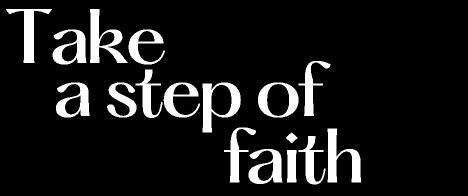
In 2024, take a step of faith into study and gain fresh insights into our faith in rapidly changing world. Deepen your understanding of the scriptures, enhance your leadership skills, and learn to connect faith to real-world challenges inside and outside your church.
• Strengthen your foundations
• Sharpen your communication
• Experience personal growth
• Expand your reach
Subjects available for application now can be taken as part of any ministry, theology, leadership, counselling, and business course at AC.

Get qualified as a Chaplain, designed specifically for pastors
Certificate IV in Chaplaincy & Pastoral Care Ministers Chaplaincy Upgrade
Become a chaplain and extend your pastoral reach beyond your congregation, into to a broader community in need.

Join classes in April, May or June
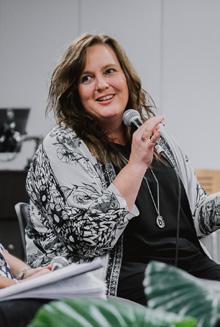

Walk in the footsteps of the early church leaders
Greece & Turkey New Testament Study Tour
See the New Testament come to life in this 19 trip all inclusive trip with AC’s Bible experts.
“This is a life-transformational trip that is both inspiring and refreshing!“
As a leader and as a human being, I have learned to appreciate being told No. Our human nature is to balk when someone denies our requests, but let me explain why it’s healthy and even beneficial to hear this dreaded two-letter word.
We’ve all been told No at some point in our lives. Conversely, we’ve told others no. Life is full of Nos. But beyond our initial reaction to being told No is the opportunity to discover something even better than the closed door in front of us. When you are told no, maybe you experience deep disappointment or pain. Anger, resentment, a loss of hope, or any number of negative feelings are healthy and normal. After all, some of us have been denied dreams, relationships, connections, opportunities or other tangibles we’ve worked hard for and yearned to take hold of for a long time. It’s OK to mourn those things.
As I take inventory and look back on my life, I see the flip side of No. I see that my greatest opportunities came precisely because somebody first told me No. I grew in the 'No' moments of life and developed a bigger perspective to see outside the singular situation I had been so fixated on previously. Every No has possibilities inside of it.
So, look at your life. Think about it for a moment. Consider all the memories, transitions, lessons, and difficult circumstances you’ve survived thus far. Think of all the major places where you have heard someone say, 'No, you may not do that. No, you can’t have that job. No, no, no.' As you look back on those memories, ask yourself, What came out of those Nos? Perhaps some of your greatest opportunities came from being told No, redirecting your course, or considering other options after encountering closed doors. The greatest possibilities arose for so many people we admire in the middle of their nos.
Every No is pregnant with a yes. So, feel the pain. Feel the disappointment. Feel your feelings because they are human, and they are healthy. Feel them all, but don’t let them hold you back in the long run. Hear that No, process it and then look around and assess the opportunities that are still in front of you. A simple No can open doors you never thought possible! Appreciate the power of No! And while you’re at it, don’t be afraid to say No to things and to people when necessary!
Performance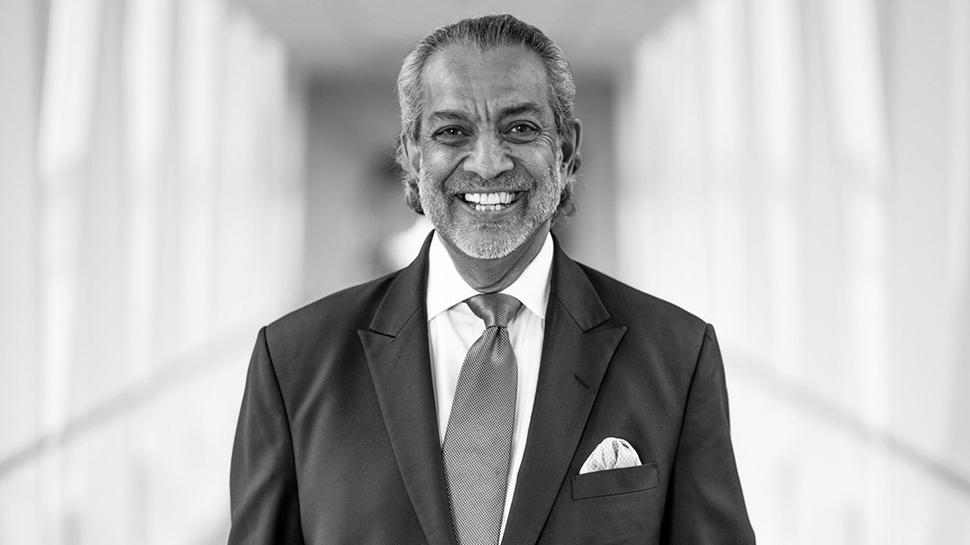
The gifts, or charisms, of the Holy Spirit are central for Pentecostal ministry. Similarly, Spirit-empowered gifted leaders are essential for the effective functioning of our churches. Leaders inspire people with vision and propel them towards common objectives. Leaders are not only gifted but usually also demonstrate a level of 'charisma'.
In the Greco-Roman world, gods were worshipped to improve one’s own status and used to seek selfadvancement. Within the Corinthian community, the showy demonstration of spiritual gifts improved one’s status. The more spiritual and charismatic a Corinthian looked the more honour they would receive. But Paul smashes this wrong thinking. There is no basis for ambition or boasting in our giftedness.
Paul emphasises both the diversity of the gifts of the Spirit and the origins of the gifts in 1 Corinthians 12:1-7. The gifts are given and distributed by the Spirit (12:4). Yet, too often we can think of these as 'my' gifts. Too often we can consider our personal charisma as personally achieved. Instead, they are gifts from God. They do not belong to us, nor are they generated by us. They are given generously and graciously by God for the common good (12:7) and for the glory of God.
The charisms are a gift so that we can serve the church, not ourselves. Yet it is our personal responsibility to generously and graciously administer the gifts given to us. We are each one little part in the body of Christ, not the big deal (12:15-26). This is why, in the next chapter of Corinthians, Paul emphasises the virtue of love.
Charisma may open the door to ministry, but it is character that sustains us. Paul describes love as the essential virtue (or character trait) we must cultivate in our lives and churches. So, it is not really charisma versus character. Instead, Paul calls us to nurture charisma and character.
Love is the very essence and nature of God (1 John 4:8b), demonstrated to us in the self-sacrificial life of Christ (1 John 3:16). Love is superior to the spiritual gifts as it will outlast them all (13:8-10). Love does not envy, boast, nor is it proud (13:4).
Love is the antidote to our potential ambitious and selfpromoting selves. I know that I have to remind myself of this regularly. This is because in pursuing the virtue of love, we are pursuing Christ. We become like Christ. The Orthodox community call this 'theosis': becoming God. That is, we don’t become divine, but we become so Christ-like that we are changed into His same image; the image of the Son (2 Cor 3:18). Now that’s an ambition to pursue!
We become Christ-like as we choose, in our daily habits, to act out of love. This includes using our gifts, talents, and God-given charisma. So, as we eagerly desire the spiritual gifts (1 Cor 12:31), lets also eagerly nurture the fruit of the Spirit (Gal 5:22-23) who gives us these gifts.
Rev Prof Jacqueline Grey is Professor of Biblical Studies at Alphacrucis University College.




'No one leads forever.' What a sobering thought! There is an important leadership conversation that is needed across the church worldwide, right now. This is especially important as the baby boomer generation ages and new, younger leaders emerge.
I'm grateful that my friend Steve Murrell has courageously – and with raw honesty – tackled the subject of leadership transitions, turning his academic studies into a pragmatic guide to navigate a path that we will all one day tread.' – Wayne Alcorn
On January 15, 2009, US Airways Flight 1549 departed New York City’s LaGuardia Airport, bound for Charlotte, North Carolina. Almost immediately the Airbus A320 hit a flock of birds, causing the engine to lose power. Unable to get to an airport and with no other landing options, pilot Sully Sullenberger skillfully landed on the frigid Hudson River. All 155 passengers and crew survived with few serious injuries. The pilots and crew deserved and received many honors for their heroism in this near-death situation.
Key lessons of this story are easily applied to ministry succession and sustainability. Pilots never want to crash a plane. Similarly, pastors never want to crash a church. But many in ministry do just that when they retire (or die) without a succession plan or a successor.
Because we tend to think that speed and height are dangerous, it might surprise you that the low and slow part of a flight is actually more dangerous and deadly than the high and fast part. Low and slow refers to the takeoff and landing phase and represents only a small portion of the actual flight time. Even on short flights, much more time is spent high and fast than low and slow. In terms of accidental aviation fatalities, 49% happen during landing and 14% during takeoff. That means 63% of fatalities happen during the low and slow phase—on or near the runway—and only 37% occur while the plane is high and fast.
I can’t prove it with data, but my experience tells me similar percentages might also apply to leadership transition crashes in churches and ministries. If we can get the plane off the runway and high in the air, there is less chance of a fatal crash. Likewise, if we can get the leader firmly in the pilot seat with hands on the controls, there is a better chance of a successful ministry.
Whether we are taking off or landing, the runway (succession and transition) is the danger zone.
Before we start building our leadership runway, let’s take a moment to consider the most common causes of runway disasters. When the Tenerife Island runway disaster was analysed, the challenging circumstances were obvious—over-crowded runways, last-minute decisions, impaired vision, and confused communication— but the real problem was pilot error. Every runway disaster is unique, but like Tenerife Island, most are ultimately caused by pilot error. Likewise, in the church world, every leadership transition is unique and challenging, but the most common fatal flaw is 'pastor error.'
The aviation industry has identified three common pilot errors that lead to runway disasters: incursion, excursion, and confusion.

The news media called it the 'Miracle on the Hudson'. A National Transportation Safety Board official called it 'the most successful ditching in aviation history'. Warner Bros. called it Sully—a movie directed by Clint Eastwood featuring Tom Hanks as Chesley 'Sully' Sullenberger, the celebrated pilot.
In the context of ministry succession, leadership transition, and post-founder sustainability, two lessons from the 'Miracle on the Hudson' must not be overlooked.
First, while a highly skilled pilot can sometimes land a plane with no runway and without killing passengers, most people cannot. The surprising fact that no one died in the Hudson River landing is why Sully has been called a hero and the river landing has been called a 'miracle'. Sully’s 'miraculous' water landing did not prompt the airline industry to conclude that runways are no longer necessary.
Applied to ministry, this means that while some highly gifted leaders can instinctively (or luckily) land a ministry plane without a runway (or do leadership transition without a succession plan), most cannot. Runways are still necessary for safe landings, and succession plans are still necessary for healthy ministry transitions. Unfortunately, many ministers attempt to land their ministry with no leadership runway in sight, and they seem to expect their
successors to gain altitude without a runway. When we take the time to build a leadership runway (succession plan and leadership transition strategy), most emerging leaders will gain altitude faster and most experienced leaders will land safer.
Second, while the famous Hudson River landing was successful in terms of saving lives, the US Airways plane was destroyed in the crash and never flew again. In a ministry context, that would be like a leadership transition where individual leaders survived, but the church or ministry didn’t.
The Leadership Runway aims to provide experienced and emerging ministry leaders with the tools to develop a strategic succession plan and, more importantly, the wisdom to turn that plan into a smooth leadership transition—one that results in a ministry that not only survives but thrives with next-generation leadership.
As I write, I’m thinking about the 66-year-old founding pastor of a 35-year-old church who feels it is time to 'pass the leadership baton' but is not sure if the designated successor is ready.
I am thinking about his successor who is unsure what parts of church structure can be changed and what parts cannot once he becomes the senior leader.
The ultimate goal is for leadership transition to be done in a way that not only enables survival, but empower ministry multiplication
–
STEVE MURRELL
I’m thinking about the faithful cross-cultural missionary couple who spent a lifetime learning a new language, engaging an unfamiliar culture, and developing indigenous leaders. The locals are ready to lead, and it is time for the missionaries to transition to the next phase of ministry. But what does the next step look like for that veteran missionary couple?
I am thinking about the campus ministry regional director who has been successful at every level of campus ministry, but now feels called to plant a new church. How will she identify and develop her replacement? How will she prepare for a pastoral ministry role?
The goal of the book is more than a well-written succession plan. Succession planning is important, and will be addressed, but a well-written succession plan does not guarantee a smooth leadership transition.
My prayer is that this will equip leadership teams to formulate useful succession plans and facilitate successful leadership transitions. The ultimate goal is for leadership transition to be done in a way that will not only enable ministry survival, but also empower ministry multiplication.
Three years of dissertation research unearthed a threepart pattern in successful leadership transitions that
was confirmed by multiple sources, both in ministry and business literature. Here are the non-negotiable big three requirements for successful succession:
1. Prepare emerging leaders to lead the organisation.
2. Prepare the organisation to be led by emerging leaders.
3. Prepare experienced leaders to finish well.
The Leadership Runway is organised around these three principles. When all three are understood and applied, the possibility of a successful leadership transition increases. When one or more is neglected, the possibility of a runway crash increases.
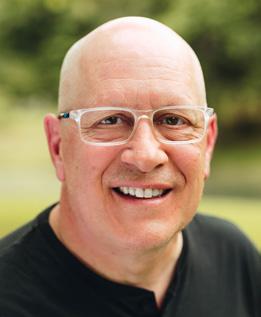

100% of Alloyfold’s profits are invested into their ministryto help people make a fresh startthe heart of the Gospel.

Alloyfold’s organisation is a ministry of Riccarton Community Church, and the gospel of Christ is central to their mission.
100% of Alloyfold’s profits are owned by Pathway Charitable Group, who provides prisoner reintegration services, affordable housing, drug and alcohol rehab and employment for those with barriers.
Over the past 25 years Alloyfold has made an impact on thousands of lives, creating stable futures and preventing the negative cycles of reoffending that are so common. They have also joined with churches across Australia to provide amazing seating solutions. Replacing old pews with comfortable loose seating, or helping to create inspiring auditorium-style spaces of worship is Alloyfold’s bread and butter.
And each project has helped Alloyfold fund their mission. So when they say “One chair can change a life”, they really mean it. You can learn more about Alloyfold and their mission online at: alloyfold.com.au





Our world is not that different to Jesus’ world. It is riddled with social, political and cultural divisions. This can create a tribalistic social context that is combative and hostile. Jesus can not only empathise with this; He experienced it. Jesus also offers a pathway forward.
In Mark 11, Jesus’ enemies try to trap Him with a thorny question. After evading the trap, Jesus tells a parable against those religious leaders who just tried to ensnare Him. In response, they try to trap him three times in chapter 12. The first of those, which is well known, will be our focus.
But before we get to that, the word used for 'trap' is a word to describe hunting and catching animals for food. Jesus’ enemies were trying to bait and snare Jesus like an animal, before having Him killed.
How does Jesus defuse the combative and hostile atmosphere? And how might that apply in our tribalistic culture?

Here is the first trap: Jesus’ enemies ask, “Is it right to give the imperial tax to Caesar or not? Should we give it or shouldn’t we?” (Mark 12:14-15).
The question is crafted with evil genius.
Talk about a hot-button issue in Jesus’ time. When the Romans introduced their imperial tax in AD 6 in Judea, it immediately provoked a Jewish revolt led by Judas of Galilee. But the Romans mercilessly crushed the revolt.
Sixty years later, in AD 66, there was another Jewish revolt attempting to overthrow the Romans. That led to the Romans defeating the rebellion, flattening Jerusalem, killing thousands and destroying the Temple.
Jesus is being asked this question roughly in the middle of this past and future violent and bloody rebellion. The situation was a powder keg. And there were presumably Roman soldiers standing within eyesight of this conversation.
The question is crafted with evil genius because it is a lose-lose situation. If Jesus said 'no – we shouldn’t give to Caesar', He would likely have been arrested as an insurrectionist for fostering rebellion and be executed. If Jesus said 'yes', the Jewish people would view Him as a
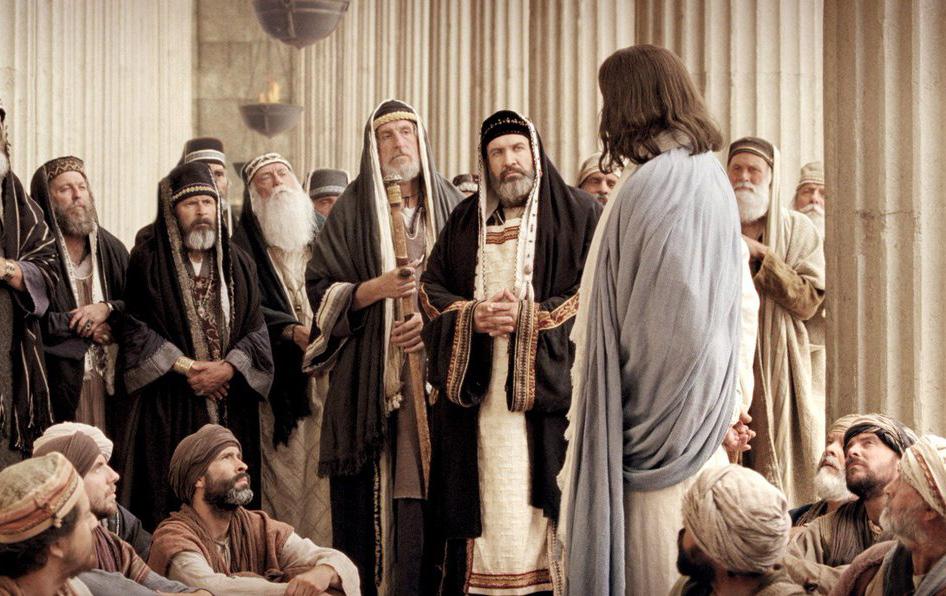
traitor and His public reputation would be ruined, ending His ministry. This trap is nefariously clever.
In recent years, Christians have been divided over a range of hot-button issues.
The social background to this question is what ties it with our own time. Let me explain.
Jesus’ fellow Jews in Israel held very strong but different views about the Roman Empire. Some – the Zealots – wanted to violently overthrow them. Others – the Essenes – thought it best to withdraw away from Romangoverned mainstream society because it was spiritually polluted and morally bankrupt. Others – the Herodians – were happy to pragmatically conspire with the Roman authorities for personal gain. And there were other views, too.
The issue was simultaneously emotive, divisive and very important. Whatever your views on this issue, they would make you unpopular with someone. Credit to Jesus’ enemies; it was a brilliant trap. Jesus – the greater genius – rightly asks, “Why are you trying to trap me?”
The precise issues in Jesus’ day that caused division among God’s people are different to those in our day.
But the parallels are instructive. In recent years, Christians have been divided over a range of hot-button issues: vaccination, lockdowns, Black Lives Matter, the Voice, liberal vs labour, and many more.
These are big, important and divisive issues. So was Roman rule of Israel in Jesus’ day.
Our cultural system is set up to bait and trap us.
I happen to have some strong views on several of our current issues. I’m sure you do too.
Our culture is a funny thing. Today some issue that virtually no one talked about a year ago suddenly is the 'in thing', and many feel pressured to have an opinion about it. Then in a few months or a few years, another issue takes the spotlight. And so on.
In this passage, individuals were trying to trap Jesus. In our culture, I believe there is a spiritual power called tribalism that seeks to trap us. For our context, a working definition of tribalism is 'loyalty to those with our sociopolitical views combined with strong negative feelings for people with other views'. Tribalism seeks to turn people against each other.
Our cultural system is set up to bait and trap us, so that we dig our heels in on a particular issue or a range of
issues.
Then, because many people have poor conflict resolution skills, and on social media conflict resolution is both impossible and undesirable, our culture presses us into an 'us vs them' situation. Demonic principalities and powers try to bait and trap us into an 'us versus them' tribalism, so that we view the other group of people as the enemy.
In his book Confronting Injustice Without Compromising Truth, Thaddeus J. Williams observes: 'The rules of our current cultural moment … [are] little more than a selfrighteous exercise in dehumanising those we disagree with – expanding the chasm between a tribalised ‘us’ and a demonised ‘them’.” I suggest our response to this should follow that of Jesus: 'Why are you trying to trap me?' (Mark 12:15).
Many years ago I was having a heated theological disagreement with a friend – I’ll call him Dave. He was a little older and more mature than me, but I was convinced my theology was right. After we went at it for a while, it was clear neither of us was going to persuade the other. He pointed his finger firmly at me, grinned and interrupted, 'You know what bro, I love you.' I was so annoyed. I wanted to carry on the argument. I had more points to make. But, actually, he was discipling me into affirming what was more important. He schooled me. Our loving one another was more important than having to agree on that subject. I was annoyed at the time but, once I realised the Christlikeness I had just witnessed, I have been grateful ever since.
Christians will disagree with each other, just like everybody else will. But in this current cultural moment, we as Christians have a beautiful opportunity: to disagree without being disagreeable. To be known for disagreeing with people in a way that demonstrates love for the ‘other’ and humility about our own convictions.
It has never been a requirement of God’s people that we have identical theological and political convictions. Every hot-button topic is not a deal-breaker.
The conclusion is as obvious as it is brilliant.
Jesus’ genius answer
Our Master Jesus isn’t finished: “‘Bring me a denarius and let me look at it.’ They brought the coin, and He asked them, ‘Whose image is this? And whose inscription?’ ‘Caesar’s,’ they replied. Jesus said to them, ‘Give back to Caesar what is Caesar’s and to God what is God’s.’ And they were amazed at him” (Mark 12:15-17).
On the coin was the image of Tiberius Caesar, as everybody knew. According to ancient ways of thinking, the coinage not only was guaranteed by the Emperor but actually belonged to him. Therefore, no one who used the coin could object to paying taxes to Caesar.
By using the word 'image', His listeners would likely have immediately associated it with that famous verse from Genesis 1. There, God said He made human beings in God’s own image.
The conclusion is as obvious as it is brilliant. The coin bears Caesar’s image, so give back to Caesar what is his. You bear God’s image, so live in a way that honours the one who has proprietary rights over you.
Jesus’ wisdom sets aside tribalism, ancient and modern, and instead imparts life.
What is also brilliant about this answer is it has the potential to defuse the tribalistic division of 'us vs them'.
Jesus is reminding His hearers – and His questioners – of a game-changing truth by way of a question: 'Who is made in God’s image?' All people. That radical democratising truth that all people are made in God’s image was, in the ancient world, unique and revolutionary. Crucially, that includes those you disagree with.
Trying to trap other people like animals dishonours people and the God in whose image they are made. In saying this, Jesus was reminding His questioners of their faith and their failure to follow it.
Similarly, allowing ourselves to be trapped by a tribalistic spiritual power into a 'righteous us' versus a 'demonised them' is compromising our faith. People, including those we disagree with, are to be treated with dignity, not demonised. This is true even when the issues matter a great deal.
Jesus’ wisdom sets aside tribalism, ancient and modern, and instead imparts life.
And Jesus’ answer also raises the issue of authority. But that’s a topic for next time …
Rev. Dr Adam Dodds is a Lecturer in Systematic Theology at the Brisbane Campus of Alphacrucis University College, and Teaching Pastor at Nexus Church, Brisbane.
This article was first published by Crucis. Click here to read more.



There’s no doubt that we learnt and grew a lot over the first decade of Enjoy Church, and through that learning and growing we were positioned for a wonderful second decade.
My encouragement to pastors, business owners, entrepreneurs and newlyweds would simply be, don’t despise the learnings of your early years. Yes, you’ll experience some challenges and yes, you’ll probably fail along the way. But always remember that only those challenges and failures that don’t impart valuable lessons are a waste of time. All the rest are actually just bitter lemons preparing you for great lemonade.
While many might look at the first decade of Enjoy Church and chalk it up as being a success, truthfully, it was what was being forged within us, as pastors and as a church, that was our greatest success.
And before I go on, don’t be fooled by what you see from a distance. In this crazy social media age in which we live, everyone and everything can have the appearance of success. Just as you filter photos before sharing online, businesses, marriages, families, individuals—and dare I say it, even churches—have become great at filtering reality. Pastors are great at this. For example, ‘Let’s not show the empty seats in the shot.’ Just speaking from experience.
What is way more appealing than a filtered reality is authenticity, transparency and integrity. People are tired of being promised they can have the perfect ‘Ken and Barbie’ life while all the time struggling with the realities of a plasticised world filled with imitation. This is where the Church, and Christians as a whole, really have an opportunity to shine and come into their own, because people aren’t looking for perfection. They will take genuineness over perfection any day.
In a world where ‘over-promising’ and ‘underdelivering’ has become normal, churches, businesses and
communities that ‘under-promise’ and ‘overdeliver’ are more and more appealing to everyone.
Jesus is the original Culture King! His ability to bring and establish culture here on earth through His life and ministry is why we’re enjoying our lives and church so much today. He didn’t just reveal to us the way, the truth and the life, but He brought to us a Kingdom that really does have a culture all of its own.
Most of our congregation will tell you that what they love most about their church isn’t necessarily the preaching, the worship experience or, for that matter, any of the other great things that we do and participate in as a spiritual family. Rather, it’s the culture we imbibe as a church.
Shane Baxter is the former ACC State President of Victoria, and together with his wife, Georgie, are the Senior Pastors of the multi-campus Enjoy Church.

©2024 Shane Baxter. Extract from Only Believe published with permission. Click here to order the book

In a recent meeting I heard a report on what this generation is looking for when they think of leaders, pastors and people in authority in the church. Words such as 'authenticity', 'real' and 'transparent' were used to describe what younger people are looking for in people they would follow and, more importantly, trust!
I think all of us in our interactions, perhaps unconsciously, desire that people we engage with will be people we can trust. Stephen M.R. Covey in his book ‘The Speed of Trust’ says, 'Trust impacts us 24/7, 365 days a year. It undergirds and affects the quality of every relationship…'.
Of course, trusting someone is more complex than finding someone who is simply being ‘real’. It requires a number of other things to be at play. If we are looking for someone who we can trust with something important in our life, according to Covey, we look for two things; integrity and competency.
In my work as a Supervisor and Mentor with Pastors, Leaders and Chaplains, I have noticed that there are specific conditions that they are looking for in order to talk honestly about their ministry and personal life. As a practitioner, they are looking to me to understand their context, to create a safe space through confidentiality and the ability to help them reflect and process issues.
As I was reflecting on the rising call of this generation for the Church and its leaders to be authentic and transparent, I began to think of those I have the privilege to walk alongside and what it meant for them. It requires those in leadership or Christian ministry to have extraordinary lives.
Keith Farmer says, 'The pressures and inevitable stress of a Christian leadership role highlights how important issues of Christian maturity and the formation of Christian character are. It is when a leader is under pressure that their true character is revealed.'
The resounding question is where do those in ministry who in my experience are often overwhelmed find the time and energy to attend to such a vital need.
To navigate these pressures, we need to develop a personal and corporate culture that champions and sees the need to intentionally create support systems around our lives as we outwork our call to serve people in this generation.
What is exciting is that there is a growing group of mature, experienced and trained Christian mentors, supervisors and coaches being raised up to meet this need such as Tend Leaders, Chaplaincy Australia recognised Supervisors, and Mentors, Australian Association of Supervisors and Australian Christian Mentoring Network.
For more information visit, tendleaders.com.au
Pastor Annette Bartlett has been leading and helping people in local church and community for over 30 years. She is professionally trained in supervision and faith-informed coaching and mentoring.


Reportable Conduct Schemes now operate in NSW, ACT, Victoria, Tasmania and WA.
Reportable Conduct Schemes have a different focus to, and are in addition to, child protection ‘risk of harm’ reporting (mandatory reporting) and police reporting (e.g. failure to report).
The schemes aim to ensure that allegations of Reportable Conduct are well-handled, and that the paramount consideration in all decision-making is the safety, welfare and wellbeing of children.
The scheme operators (e.g. Ombudsman, CCYP, OCG) also monitor systems for preventing, detecting, and dealing with Reportable Conduct and Reportable Convictions.
Reportable Conduct (in general terms) includes:
• sexual offences
• sexual misconduct
• neglect
• assault
• behaviours that cause significant emotional or psychological harm
• where they exist, failure to report and failure to protect allegations
All allegations of Reportable Conduct against current workers (volunteer and paid) who are over 18 years (including historical allegations) must be reported by your local church’s head of organisation to the scheme operator within a set time frame.
The local church’s head of organisation must also provide
updates and a final report to the scheme operator in relation to the investigation.
The scheme operator will also make relevant reports to the operators of the Working with Children Check, and this may lead to a bar on the worker’s WWCC.
We acknowledge that there is a lot of information to absorb about Reportable Conduct, and that each state and territory has its own definitions and rules for operation. Therefore, please take the time to read the information on your state or territory’s website.
READ MORE: An extended version of this article can be found in video format on the Creating Safer Communities website


Key considerations for churches, ministries, and Christian Schools: What you need to understand about obtaining finance and insurance for your property.


Whether you are a part of a church, ministry, Christian school, SME, or NFP, knowledge is power. Established by the ACC, ACS Financial is committed to supporting our clients achieve their goals by offering tailored insurance, lending and investment solutions.
What sets ACSF apart is that we understand church. From our wealth of experience, we’ve compiled helpful tips around our church lending service, but we offer much more We recommend speaking to a team member for comprehensive guidance on the points below.
1. A rejected loan application makes future applications more challenging.
Once an application is rejected, it is on file, making future attempts to secure a loan more challenging. Come to us first so we can help preserve your financial reputation. Let’s do it once and do it right.
2. Banks are not proactive
Banks have a massive volume of applications coming through each day. A banker will go through a list, check off items, and assess the information presented to them, and that will determine the outcome. They’re not there to help a church succeed. They don’t understand the unique footprint of churches and how they 'generate income' through tithes and offerings. We speak your language and advocate fiercely for terms that help your loan application succeed.
3. It’s possible to negotiate better rates if you have a strong case Heritage Christian Church was paying a high-interest rate based on the calculated risk of their rural location. They spoke with us, and our team quickly reviewed their case, contacted the bank and successfully re-negotiated a low interest rate, saving them thousands of dollars in just a few hours. when you are a client of ACS Financial, we ensure you get the very best outcomes from a complex and non-aligned financial services industry.
4. Cyber criminals like to target churches Often Churches tend to have limited resources to manage their online systems, leaving them vulnerable to cyber-attacks. As cybercrime increases, Churches should consider cyber insurance to guard against losses that may come from a breach of sensitive data or costly cybercrime.
5. Regular roof maintenance prevents costly damage Weather-related claims account for a large percentage of church insurance claims. A regular property maintenance program, including checking roofs, gutters and downpipes for wear and tear or blockages can help avoid costly claims and disruption to your programs.
At ACS, our mission extends beyond financial services. We’re dedicated partners on your journey, offering expertise and a steadfast commitment to your success. When you choose ACS, you’re choosing more than a provider—you’re choosing a trusted ally, walking alongside you every step of the way. At ACS we’re really with you.
Call ACS Financial at 1800 646 777 to see how we can support you or click on the banner below to head to our website.




No one leads forever, which is a universal truth that cannot be ignored. Steve Murrell's research revealed a three-part pattern in successful leadership transitions for the ministry leader who wants their ministry to thrive long after their tenure.
• Prepare emerging leaders to lead the organisation.
• Prepare the organisation to be led by emerging leaders.
• Prepare experienced leaders to finish well.
Steve breaks down these three non-negotiable requirements while looking at the emerging leader's heart for God and his people, his skills, and his spiritual life.

While many authors write about lessons they've learnt from others, what sets this book apart is Shane's transparency about the life experiences which shaped him, and the amazing multi-site Church called, Enjoy Church.
This inspirational, informative, and faith-building book sets out his and Georgie's remarkable ministry journey.
Shane is celebrated not only for his infectious personality and sense of humour, but also for his compassion and love of people. Typical of his authentic preaching and teaching style, he shares about the highs and lows of being in ministry, whilst giving insight into his greatest personal challenge, his own heart.
Only Believe is more than just a story. It's a testimony of what God can do and wants to do in and through all of us.

Launching nationally in Cinemas from May 15, 2024
What happens after you die?
After Death is a gripping feature film that explores what happens after we die, based on real neardeath experiences, conveyed by scientists, authors, and survivors.
From the New York Times bestselling authors who brought you titles like 90 Minutes in Heaven, Imagine Heaven, and To Heaven and Back, emerges a cinematic peek beyond the veil that examines the spiritual and scientific dimensions of mortality, inviting us to wonder: Is there life after death?
After Death comes from Angel Studios (The Chosen, Sound of Freedom) and broke the record as the highest grossing faithbased documentary feature of all time.
WATCH the trailer here
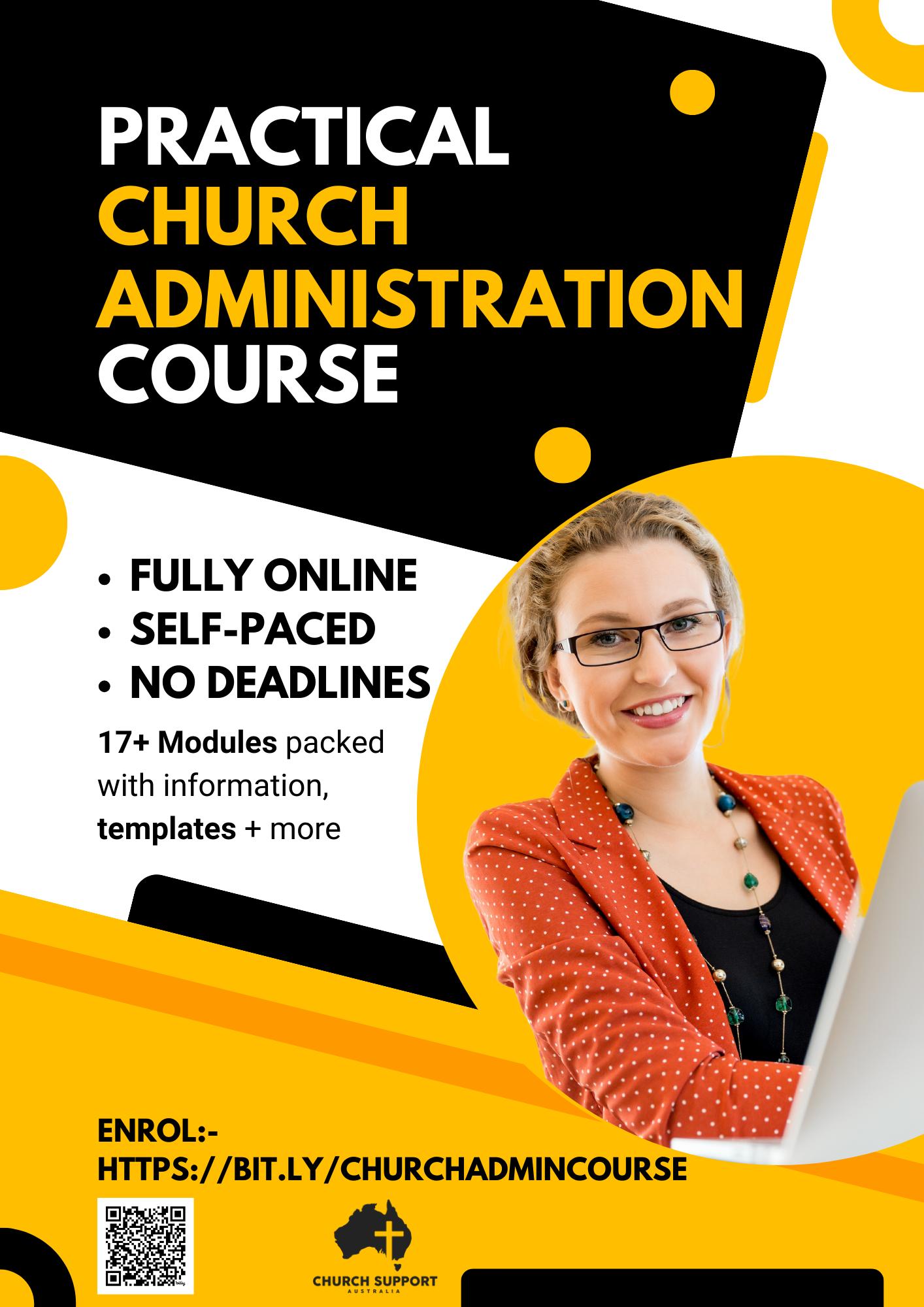

ACC EMAG #2 2024
Published by Australian Christian Churches.
Editor: Daryl-Anne Le Roux editor@acc.org.au
Graphics & Media Assistant: Kieran Carlos
Proofreader: Elba Broadhead
Photography by:
p. 1 Unsplash / Jordi Moncasi
p. 4 Instagram @accsnapshot
p. 5 AOG Fiji
p. 9 iStock
p. 12 iStock
p. 14 Dr Samuel Chand
p. 21 Dr Samuel Chand
p. 18 Avail Andrew Van Tilborgh
p. 23 Pexels / RDNE Project
p. 24 Pexels /Tom Fisk
p. 27 ©Sully movie
p. 30 ©The Chosen
p. 34 @Enjoychurch
p. 36 Unsplash/ Prisciola Du Preez
p. 38 Pexels / Lalesh Alderwish ACC EMAG